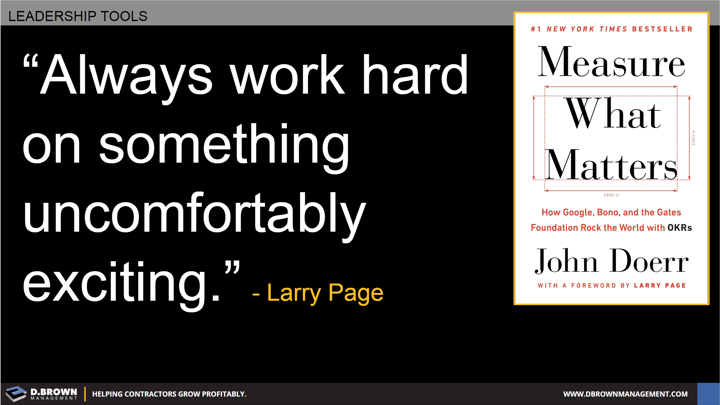Managers must set goals that are S.M.A.R.T. (Specific, Measurable, Achievable, Relevant and Time Bound. Leaders must be stretching their teams toward objectives that are beyond what anyone believes they can achieve.
John Doerr and Larry Page describe these as two different types of OKRs (Objectives & Key Results):
Committed
These are the management level OKRs that must be accomplished no matter what:
- Ask “What must be done?”
- Develop a plan
- Work that plan every day
- Follow up relentlessly.
“It is not enough that we do our best; sometimes we must do what is required.”
Aspirational
These are the leadership level OKRs that, as Larry Page describes, must make the whole team “uncomfortably excited.”
Aim high and ask the harder question: “What would have to be true for this strategy to work?” rather than the simpler question of “What is currently true?”
This is the difference between how an architect approaches things from the top down versus a builder who typically approaches from the foundation up.

